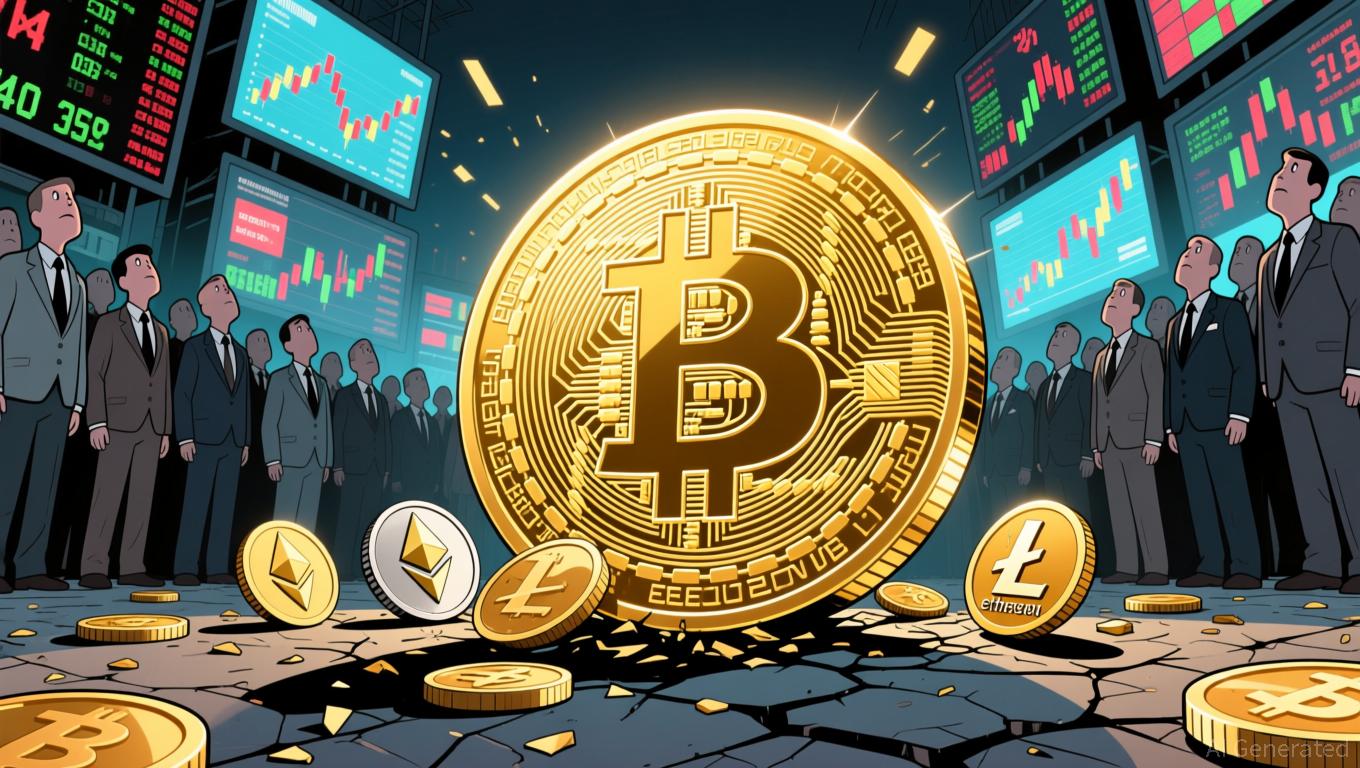Bitcoin Updates: Bitcoin's Sharp Drop Contrasts with Japan's Economic Stimulus Amid Global Liquidity Puzzle
- Bitcoin fell to a seven-month low below $85,500, triggering $3.79B in ETF outflows as bearish technical signals and Fed rate-cut uncertainty deepened selling. - Japan's $135.4B stimulus package, its largest since 2020, sparked debate over whether liquidity injections or global deleveraging would dominate market sentiment. - BlackRock's IBIT led redemptions with $2.47B losses, while Bitcoin's "death cross" pattern and broken support levels intensified investor caution. - Market analysts split between altc
Bitcoin has dropped to its lowest price in seven months, causing most retail investors to face losses as U.S. spot
The sharp decline happened alongside Japan’s announcement of a $135.4 billion stimulus package on Nov. 21, the country’s biggest since the COVID-19 crisis. Prime Minister Sanae Takaichi’s administration

Bitcoin has broken through major support zones on its way to a seven-month low, sparking heavy redemptions from spot ETFs and deepening pessimism in the market. Investors are closely watching how Japan’s huge fiscal stimulus will impact the market, as experts remain split on whether it will lead to more risk-off behavior or inject new liquidity into digital assets.
The scale of ETF withdrawals has been unprecedented.
Opinions among analysts are mixed.
Japan’s stimulus and Bitcoin’s volatility underscore a contradiction: while a weaker currency policy could theoretically drive up Bitcoin demand, it is instead contributing to global risk reduction. As ETF assets shrink and institutional players adjust their strategies, Bitcoin’s future direction remains unclear. For everyday investors, the takeaway is stark: what was once seen as a reliable hedge against inflation has become a highly unpredictable asset with no assured path forward.
Disclaimer: The content of this article solely reflects the author's opinion and does not represent the platform in any capacity. This article is not intended to serve as a reference for making investment decisions.
You may also like
Bitcoin Updates: Bitcoin Jumps 60%—Sign of Market Evolution or Monoculture Danger?
- Bitcoin's market dominance nears 60% as altcoins lag amid regulatory pressures and shifting investor preferences toward stability. - U.S. investigations into Bitmain's mining hardware and proposed Bitcoin adoption policies highlight regulatory and institutional risks reshaping the sector. - Macroeconomic uncertainties and MSCI's crypto index exclusion plans intensify Bitcoin's appeal over altcoins, with critics warning of forced sell-offs. - While Bitcoin outperforms gold in appreciation potential, its v

Blockchain and AI Empowering SMEs to Compete Equally in International Trade
- Ant Group's Eric Jing proposed blockchain smart contracts and AI to address SME income distribution challenges at Singapore FinTech Festival 2025. - Blockchain infrastructure enables real-time, transparent revenue sharing among collaborative agents, with digital currency enhancing trustless transactions. - AI tools like Antom Copilot and EPOS360 streamline SME operations, while MAS partnerships through sandboxes advance blockchain-based trade solutions. - Projects like Guardian (tokenized money) and Path

Bitcoin Updates Today: Bitcoin Holds Firm While Investors Navigate Policy-Related Uncertainty
- Trump's 40% tariff exemption for Brazilian coffee/beef eases U.S.-Brazil trade tensions, stabilizing global commodity markets amid political clashes. - Lula's firm stance secures Brazil's agricultural exports, boosting domestic political standing while avoiding inflation spikes in U.S. food markets. - Bitcoin maintains stability at $82,000 despite Trump's tariff-driven volatility, reflecting investor confidence in decentralized assets as policy hedges. - Tariff exemptions highlight limits of U.S. economi
Mystery Grows as JPMorgan Closes Crypto Accounts Even After Trump's Prohibition
- JPMorgan's closure of Strike CEO Jack Mallers' accounts reignites debates over crypto-linked "debanking" despite Trump's August executive order banning such restrictions. - The bank cited "concerning activity" under the Bank Secrecy Act but refused to explain its decision, echoing industry concerns about politically influenced banking practices. - Critics warn such actions risk pushing crypto activity overseas and highlight unresolved tensions between regulatory compliance and innovation in digital asset